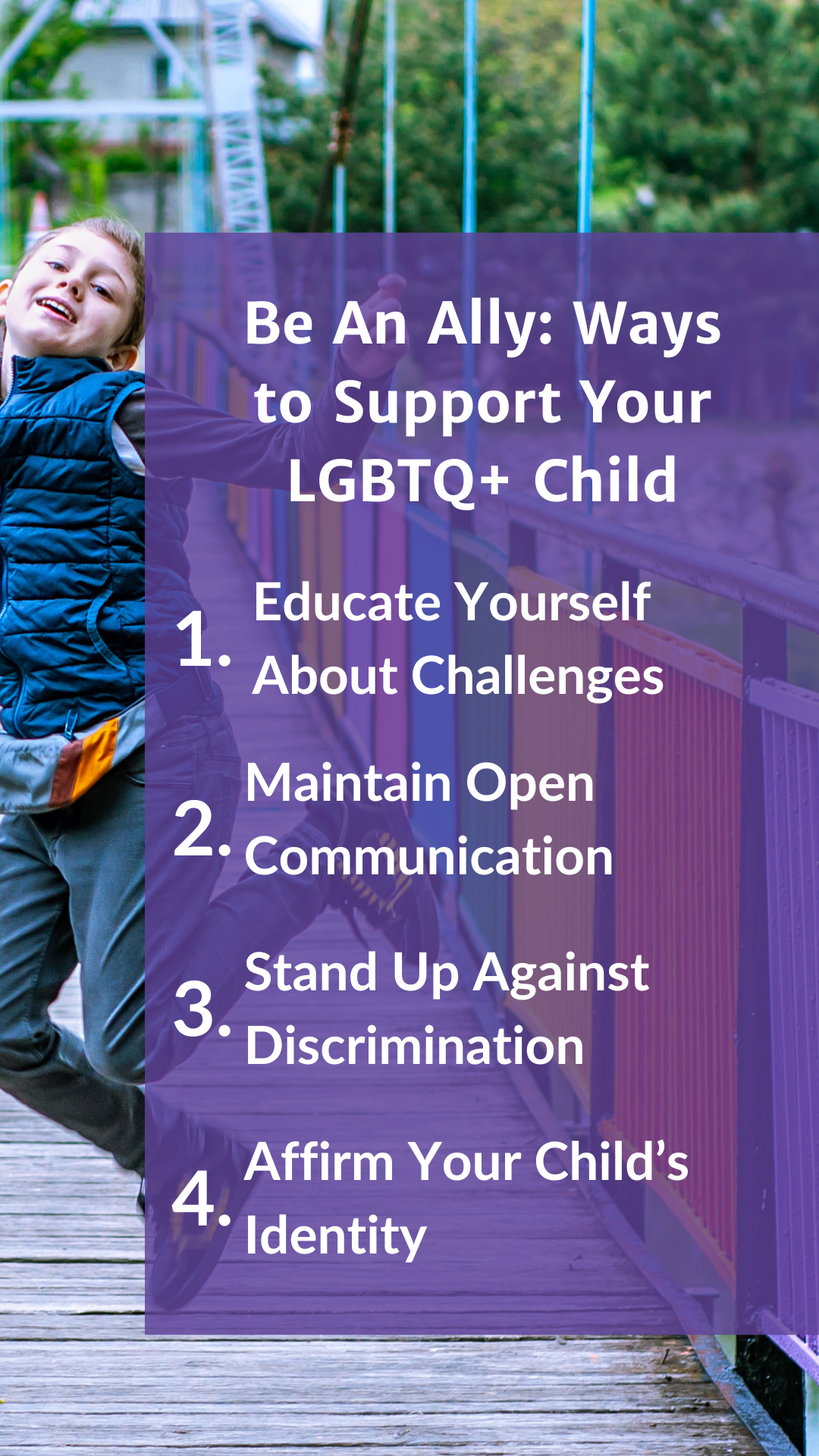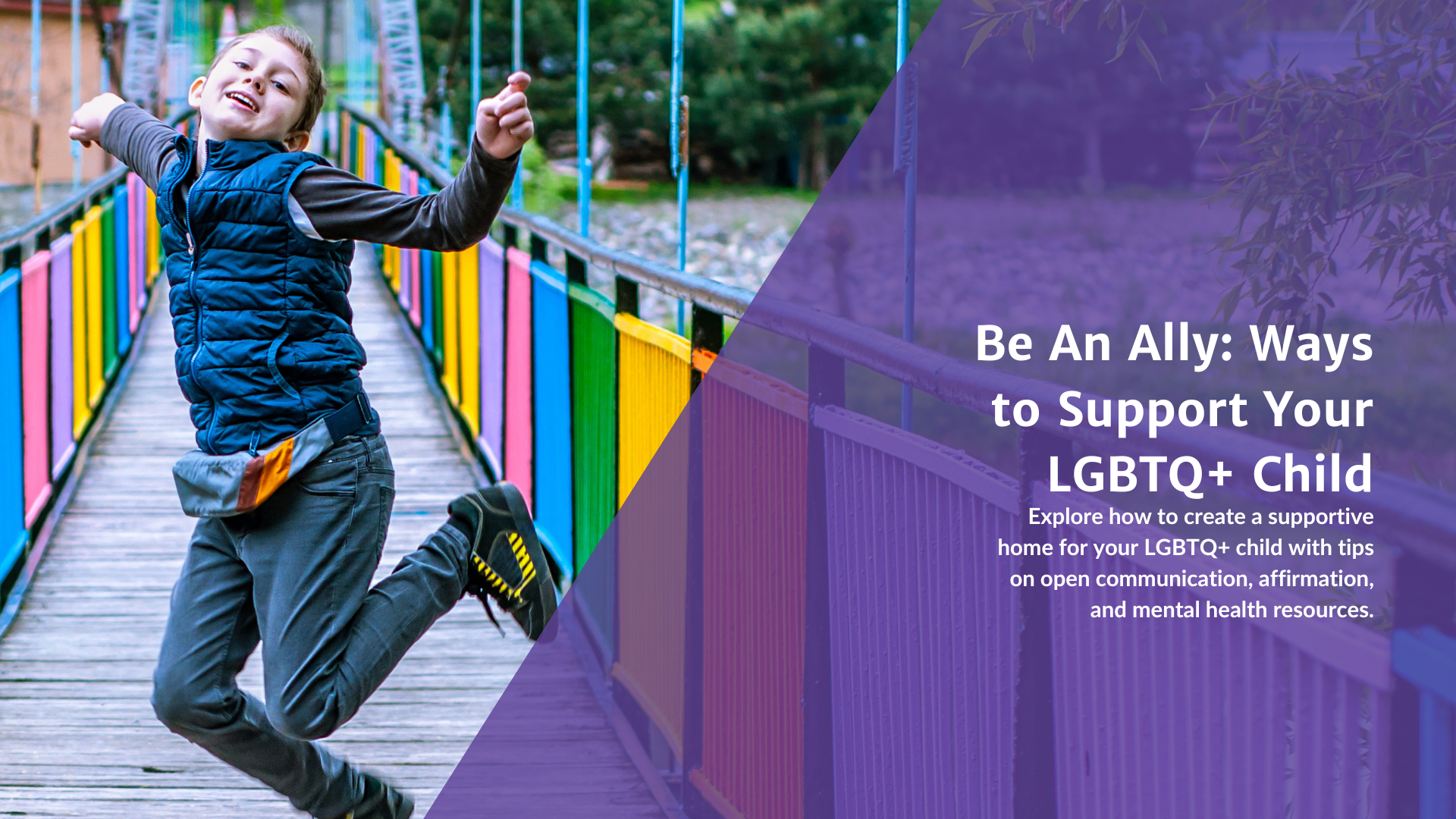Coming out can be one of the most vulnerable moments in a child’s life. For parents, it’s a time to listen, learn, and support with compassion. Your response matters because it can shape your child’s confidence and mental health for years to come. In this guide, we’ll share practical ways to support your LGBTQ+ child, creating a home where they feel truly accepted and valued.
Understanding the Challenges LGBTQ+ Youth Face
LGBTQ+ children and teens often face unique challenges that may affect their mental health. They may experience isolation, bullying, or rejection from peers, family, or even within their own communities. According to mental health awareness studies, LGBTQ+ youth are at a higher risk of experiencing anxiety, depression, and other mental health concerns due to societal pressures and discrimination. This is where your support plays a critical role.
It’s also important to acknowledge that while society is becoming more accepting, many LGBTQ+ individuals still face prejudice. Knowing the potential struggles your child may encounter can help you become a better advocate and ally.
Educate Yourself About LGBTQ+ Issues
One of the most powerful steps you can take to support your child is to educate yourself. For example, LGBTQ+ identities, mental health awareness, and gender expression are topics that continue to evolve. Learning about these concepts will help you better understand your child’s experiences and create a more inclusive and loving environment.
Start by reading books and articles or attending workshops focused on LGBTQ+ topics. Understanding gender identity and sexual orientation will allow you to have meaningful conversations with your child. And don’t be afraid to ask questions, as seeking information shows your commitment to their well-being. You’ll also be better equipped to advocate for them in situations where they may face discrimination or misunderstanding.
Open Communication Is Key
Creating a supportive environment begins with open, honest, and non-judgmental communication. Your child needs to feel safe to share their thoughts and feelings without fear of rejection or judgment. A simple but powerful way to start is by letting them know you are always available to talk. When they do open up, listen actively, and validate their feelings. Avoid assuming what they need because sometimes, all they want is a listening ear.
Conversations about mental health, therapy, and identity should be ongoing. Reassure your child that they are loved for who they are and that it’s okay to explore and express their identity. If your child is facing challenges at school or in other social environments, encourage them to seek therapy, including LGBTQ therapy, where they can discuss these issues with professionals who understand their needs.
Stand Up Against Discrimination
As an ally, you have a responsibility to stand up against discrimination, whether it’s directed at your child or the broader LGBTQ+ community. Teach your child the importance of self-advocacy while also ensuring that you are there to protect them from harmful situations. Whether it’s addressing discriminatory language or actions within your family or advocating for more inclusive policies at school, your voice can make a difference.
Yet, supporting your child isn’t just about protecting them from the negative. It’s also about actively promoting their rights and dignity. Participating in LGBTQ+ awareness campaigns, attending Pride events together, or joining supportive networks can show your child that you are committed to their well-being.
Affirm Your Child’s Identity
One of the most impactful ways to support your LGBTQ+ child is by affirming their identity. This can include using their preferred name and pronouns, respecting their choices around gender expression, and encouraging them to express who they are without fear. Affirmation isn’t just about verbal support but about making them feel seen and valued in every aspect of their life.
For transgender or gender-diverse children, affirmation goes beyond words; it’s about creating an environment where they feel respected and celebrated. This could involve educating yourself on gender diversity, supporting their decisions about clothing or self-expression, and staying open to their needs as they grow. Affirming your child is about building a foundation of trust, understanding, and unconditional acceptance.
Encourage Mental Health Support
LGBTQ+ youth often face unique mental health challenges, from anxiety and depression to identity-related stress. Access to therapy can be a valuable tool in helping your child navigate these emotions. Look for mental health professionals who offer LGBTQ+ therapy, as they can provide specialized support that respects and affirms your child’s identity.
At times, children may be hesitant to seek help, fearing that their feelings are not valid or that LGBTQ therapy won’t make a difference. You can gently encourage them by normalizing therapy as a form of self-care and emotional support. Mental health awareness is growing, and many resources now cater to the specific needs of LGBTQ+ individuals.
Build a Supportive Community
Every family deserves support as they navigate this journey together. Building a network of support can be incredibly helpful, both for you and your child. Look for local LGBTQ+ support groups or online communities where your child can connect with others who share similar experiences. These spaces provide not only friendship but also resources and advice for both children and parents.
Furthermore, family counseling sessions can help bridge any gaps in understanding and foster a more cohesive support system. Regular check-ins with your child about their mental health and well-being and involving them in community activities will strengthen your bond and reassure them that they are not alone in this journey.
Conclusion: You Are Their Greatest Ally
Your LGBTQ+ child needs you more than ever, and by educating yourself, maintaining open communication, and providing a safe and supportive environment, you’re showing them that they are loved and accepted for who they are. It’s a journey that may have its challenges, but the love and care you offer will help your child grow into their most authentic self.
At Mente Counseling, we believe that every child deserves to feel safe, supported, and affirmed. Our team of mental health professionals is committed to offering LGBTQ+ therapy that respects and celebrates diversity. Whether you’re seeking guidance on how to support your LGBTQ+ child or looking for therapy services, Mente Counseling is here to help. Reach out to us today and take the next step in supporting your child’s mental health and well-being.
FAQs
How to support your child when they come out?
How can I support my gender diverse child?
Why is family support important for LGBTQ youth?
How to educate yourself on LGBTQ?

